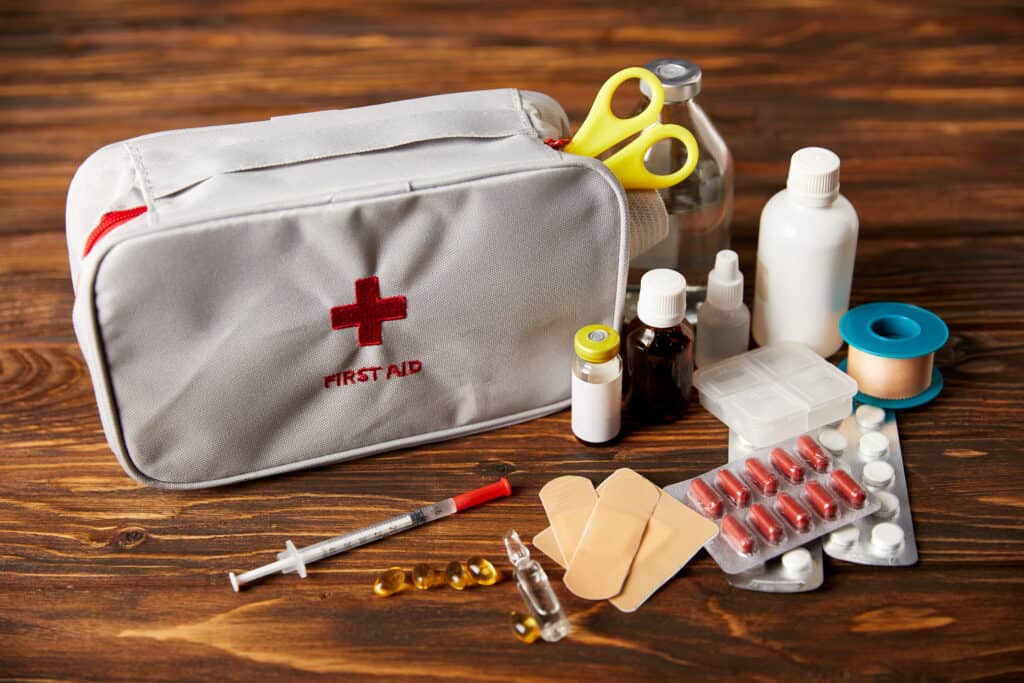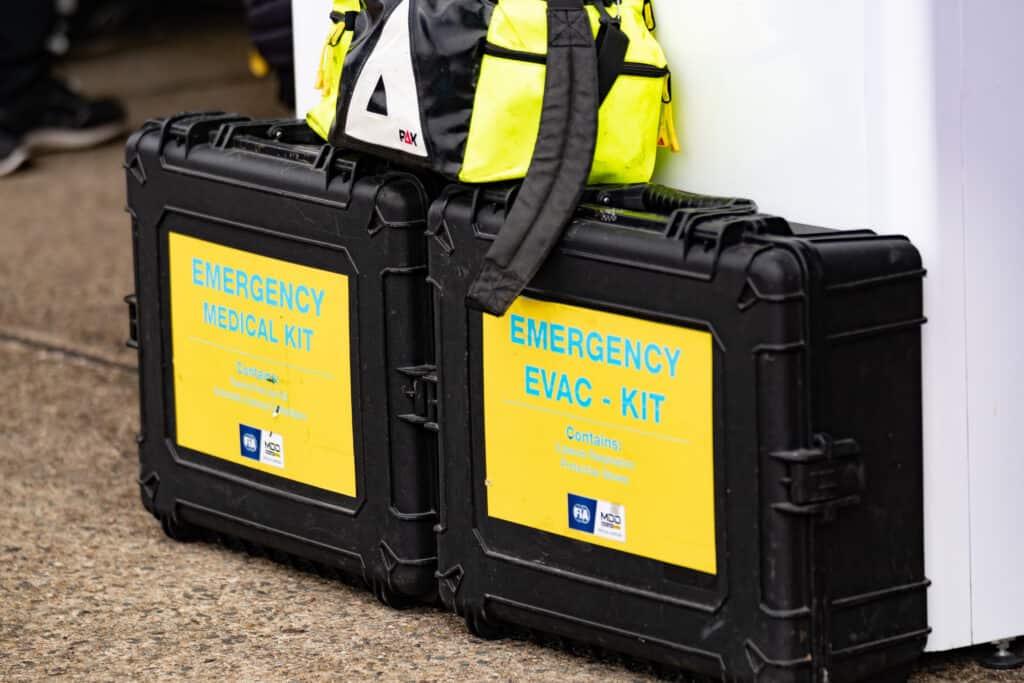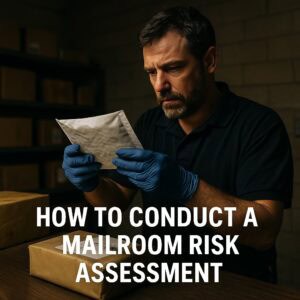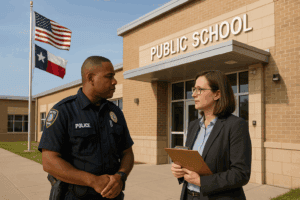Campus go-kits are essential tools for educational institutions to maintain safety and preparedness in the event of an emergency.
These kits are designed for the classroom, department, and campus-wide use, containing critical items that enable staff members to carry out their duties and ensure the well-being of students during a crisis.
By equipping appropriate entities with a go-kit, institutions can quickly and effectively respond to emergencies, minimize disruptions, and facilitate a rapid return to normal operations.
Each go-kit consists of a variety of items tailored to the specific needs of the end user.
Typically, these kits include important documents such as checklists, contact lists, and essential records, as well as communication equipment like organization cell phones, personal cell phones, radios, and internet hotspots.
Additionally, go-kits may contain personal protective equipment (PPE), and emergency supplies like flashlights, first aid/trauma kits, AEDs, and educational materials.
Staff members in individual offices and classrooms are also encouraged to create their own go-kits, including essential work or teaching materials, to be prepared for any emergency situation.
Essential Components of Campus Go-Kits
Campus go-kits play a crucial role in ensuring effective response and rapid resumption of essential functions during emergencies.
Let’s outline some of the essential components of a campus go-kit, focusing on communication equipment, important documents and records, and emergency supplies.
Communication Equipment
Communication is essential in emergency situations to maintain stability, security, and compliance with established protocols.
Campus go-kits should include:
- District identification badges
- Organization cell phones and personal cell phones
- Radios for communication
- Hotspots for added internet connectivity
- Chargers and extra batteries for phones, GPS, and laptops
These items ensure that staff members and administrators can maintain effective communication channels and relay crucial information during emergencies.
Important Documents and Records
To ensure a versatile and efficient response, campus go-kits must include important documents and records such as:
- Hard copies of student records
- Reunification materials
- COOP (Continuity of Operations) documents
- Directions to continuity facilities
- Master contact lists, including district and emergency contact numbers
These documents allow for seamless access to vital information and facilitate the decision-making process during emergencies.
Emergency Supplies
Emergency supplies help campus staff and administrators to efficiently manage crisis situations while ensuring a secure environment for students and personnel.
Campus go-kits should consist of:
- Nurses’ medical kits
- AEDs (Automated External Defibrillators) and first aid/trauma kits
- Flashlights
- Maps of the surrounding areas
- Emergency Operations Plans
- Educational materials and supplies, such as pens, pencils, and paper
- Personal Protective Equipment (PPE)
By incorporating these essential components, campus go-kits will provide the necessary tools for staff and administrators to navigate emergency situations effectively and in compliance with established protocols.
Personal Protective Equipment

First Aid Kit Requirements
A well-prepared go-kit should include a first aid kit to address any health emergencies during an emergency.
First aid kits can vary in contents but typically contain essential items such as:
- Band-aids and adhesive bandages in various sizes
- Sterile gauze pads and rolls
- Antiseptic wipes and ointments
- Tweezers and scissors
- Medical tape
- Disposable gloves
- Pain relievers, such as ibuprofen or aspirin
- Emergency blanket
It is essential to have a nurse’s medical kit as part of the go-kit, which may contain more advanced supplies for dealing with medical emergencies (trauma), such as:
- Tourniquets
- Pressure dressings
- Hemostatic gauze
- Specialized medication
- Etc.
Additional PPE Items
Aside from the first aid kit, there are other personal protective equipment items that should be included in a go-kit, such as:
- Masks: Protecting against airborne contaminants. Consider having disposable or reusable masks in your go-kit.
- Hand sanitizer: An essential item for maintaining hand hygiene during an emergency, especially when access to water and soap might be limited. Having hand sanitizer in your go-kit will help protect against possible infections and the spread of germs.
- Gloves: Disposable gloves can be helpful for protecting your hands when handling contaminated items or substances. Make sure to have a suitable size and type for your needs.
Individual office staff members and teachers should have similar go-kits that include essential work or teaching materials, as well as personal protective equipment, to ensure a swift response during emergencies.
By having a well-prepared go-kit, you can help protect yourself and others, allowing for a quicker and more efficient recovery and resumption of essential functions.
Assembling Your Campus Go-Kit
One of the most important things to consider when assembling a Campus Go-Kit is selecting a durable backpack to store and carry all necessary items.
A backpack is a preferred method as it allows for easy transportation and quick access to the items in the kit.
The contents of the kit should include district identification badges, communication equipment such as cell phones, radios, and internet hotspots, hard copies of student records, reunification materials, continuity of operations plans, directions to continuity facilities, master contact lists, and a nurse’s medical kit.
Additionally, it’s essential to include personal protective equipment (PPE) for the safety of office staff and teachers.
It’s also recommended to encourage individual staff members to build similar go-kits tailored to include essential work or teaching materials if needed.
Conclusion
In conclusion, campus go-kits are vital tools for educational institutions to maintain safety and preparedness during emergencies.
These kits contain essential items such as communication equipment, important documents and records, emergency supplies, and personal protective equipment.
By equipping each department and individual staff members with go-kits, institutions can quickly and effectively respond to emergencies, minimize disruptions, and ensure the well-being of students and personnel.
Assembling a comprehensive campus go-kit is a crucial step towards emergency preparedness and a safer campus environment.
At Risk Strategy Group, we understand the importance of being prepared for any situation. That’s why we encourage educational institutions to equip departments and individual staff members with go-kits.
By having a well-prepared go-kit, you can help protect yourself and others, allowing for a quicker and more efficient recovery and resumption of essential functions.
Contact us today to learn more about how we can help you prepare for emergencies and keep your campus safe.






